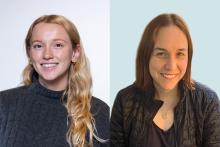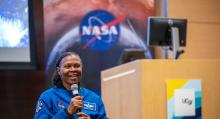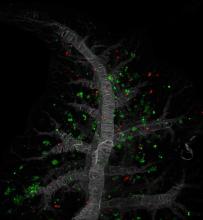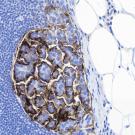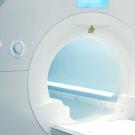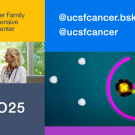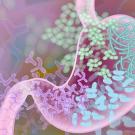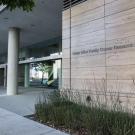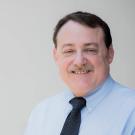News
Science Clears the Way to Treating the Trickiest Bladder Cancers
Scientists at UC San Francisco have found a way to identify and possibly treat a mysterious type of bladder cancer that affects up to 1 in 4 cases. First, they found a marker on the surface of the tumor cells that until now had only been associated with ovarian cancer; then they designed CAR-T
Worried About Getting a CT Scan? Here’s What to Ask Your Doctor
Medical imaging scans that create detailed images of the body’s internal structures are widely used in medicine. Doctors need them to detect and manage certain types of cancer, assess the extent of traumatic injuries, and diagnose and treat many other medical conditions. But the scans, known as
Predictive Biomarkers, Tailored Therapy Among Conference Presentations
Oncology specialists from UC San Francisco will present new clinical research findings and cutting-edge treatment strategies at the 2025 American Society of Clinical Oncology (ASCO) Annual Meeting, May 30 to June 3 in Chicago. Leading cancer researchers will present talks about advances in targeted
Can Gut Microbes Save Patients from Chemotherapy Side Effects?
Chemotherapy doesn’t just kill cancer cells. It also affects the microbes in the digestive tract. Researchers at UC San Francisco have discovered that some gut bacteria can reduce the side effects of these potent treatments, and that one family of cancer drugs may actually boost these protective
AI in Cancer Care, Targeted Therapies Among Cancer Conference Talks
Leading cancer researchers from UC San Francisco presented talks about advances in targeted therapies, cancer genomics, using AI to personalize cancer treatment, improving diagnosis of hard-to-treat cancers and other cancer research topics at this year’s annual meeting of the American Association
From Tumor Sidedness to Team Science: Dr. Alan Venook Reflects on a Career That Changed Colorectal Cancer Care
Alan P. Venook, MD, is a nationally renowned gastrointestinal (GI) oncologist at the University of California, San Francisco (UCSF), where he serves as the Madden Family Distinguished Professor of Medical Oncology and Translational Research and the Shorenstein Associate Director for Program
How Do Neighborhoods Impact Children’s Chances of Surviving Leukemia?
Acute lymphoblastic leukemia (ALL) and acute myeloid leukemia (AML) are the most common pediatric cancers and among the leading causes of death in children. To improve kids’ chances of survival, early diagnosis and prompt hospital treatment are required. ALL also requires numerous outpatient visits
